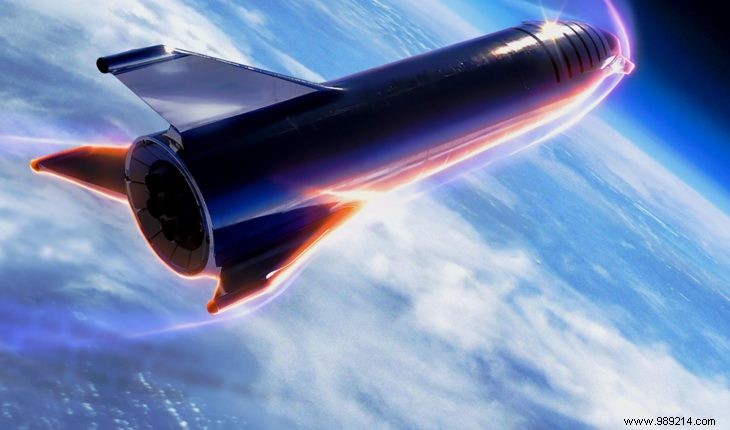The US Air Force has awarded SpaceX a five-year, $102 million contract to demonstrate military cargo and humanitarian aid delivery capabilities in the world from his Starship spaceship.
In its latest "justification book", the US Air Force compared its budget request for fiscal year 2022 to past budget data. On page 305, the government body had then announced its ambition to invest soon in a project of "cargo rocket entirely reusable with the aim of transporting "up to one hundred tons of AF cargo anywhere on Earth in less than an hour “.
If the document didn't directly name SpaceX's Starship vehicle, it was just like. A few months earlier, the Pentagon had indeed already underlined its desire to collaborate with SpaceX with the aim of transporting soldiers and equipment to our planet in record time. In addition, the Starship is currently the only vehicle under development capable of providing this type of service.
That ambition just got a little closer to reality. The US Air Force has just awarded SpaceX a 5-year, $102 million contract to demonstrate the worldwide military cargo and humanitarian aid capabilities of its rockets. This new project will be led by the Air Force Research Laboratory to investigate the usefulness of using heavy launchers for Department of Defense global logistics.
The contract, awarded on January 14 and first reported by AviationWeek, is the largest ever awarded for rocket cargo. Again, the contract is not specific to any of SpaceX's launchers, but the Starship seems the right fit.

As part of this collaboration, SpaceX will provide designs of loading bays capable of supporting fast loading and unloading compatible with US TRANSCOM intermodal containers. The contract also includes an option for a full demonstration of heavy cargo transport and landing. As part of this flight, the US Air Force's "rocket cargo program", led by Greg Spanjers, will be able to collect key data. The Air Force also plans to bring other companies into the program over time.
In the meantime, the first orbital test flight of the Starship SN20, which was originally scheduled for next February, has been postponed again. The latter could finally take place in the spring. As part of this flight, the Super Heavy will fly over the Gulf of Mexico before returning to touchdown, while the Starship will loop around the Earth before touching down off the Hawaiian island of Kauai.